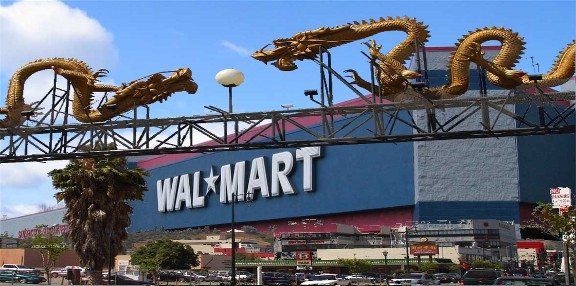

Today Walmart opened its newest supermarket, a 33,000-square-foot “grocery store” on the Chinatown corner of Cesar Chavez and Grand avenues. It’s a stone’s throw from Our Lady of the Angels’ stained-glass windows and within shouting distance of dozens of small local businesses now threatened with extinction. Local community groups had fought Walmart’s arrival as a corporate intrusion into the historic neighborhood – the store represents the retail giant’s deepest penetration into urban Los Angeles yet.
For now the new store’s critics and business competitors await the worst.
“It’s just sad for a small economy like Chinatown’s to have a large national chain whose money is going out of state and not staying in the community,” says Steven Y. Wong, interim executive director of Los Angeles’ Chinese American Museum. Wong, who says that his comments are his private opinions and not those of the museum, adds that the store “drastically changes the character of the neighborhood and will have a long-term,
» Read more about: As Walmart’s Chinatown Store Opens, Questions Remain »
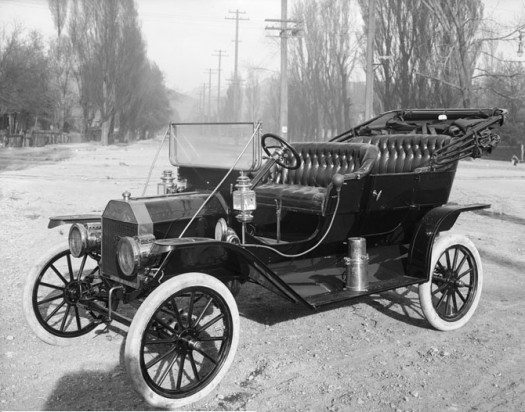
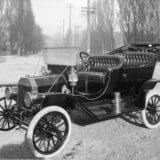
Forbes magazine, which calls itself the “capitalist tool,” seems to have a penchant for publishing right-wing diatribes posing as serious economic analyses. The latest is by Paul Roderick Gregory, who accuses me of “false facts and false theories” in a recent piece I wrote about why high wages are good for the economy.
If I’m correct, Gregory asks, how could it possibly be that America become world’s richest and most powerful economy in late nineteenth century, when the typical worker was earning peanuts?
Gregory claims to be an economic historian but he doesn’t seem to know American history. The answer is simple: Ours was a land of unbounded natural resources. We also found it relatively easy to copy the industrial advances of England and Germany, and erected a protective tariff so that our manufacturers didn’t have to compete directly with them. A giant wave of immigrants came to our shores,
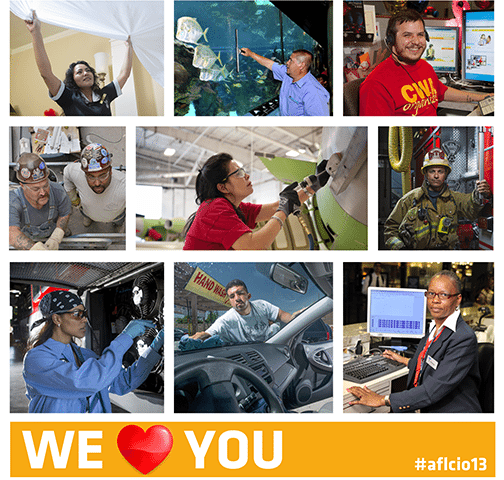

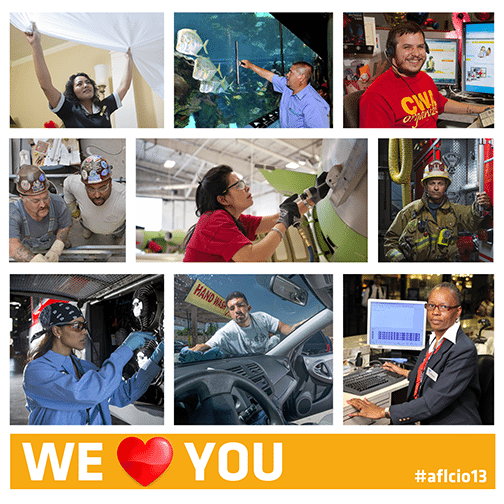 Lazy. Out of touch. Greedy. Self-serving. Thuggish.
Lazy. Out of touch. Greedy. Self-serving. Thuggish.
Chances are you’ve heard a union member or leader called one of these things (and in all likelihood, more than once), and it made your blood boil. The unfortunate truth is that misconceptions, stereotypes and all-out lies seem to be dominating the public discussion and perception of labor unions, even among some progressives. We in the labor movement know that unions stand for the working class as the sole and vital counterbalance to corporate greed and excess…but no one else seems to have gotten the memo.
That disconnect—between what we actually do and what others think we do—is the impetus behind yesterday’s action session at the AFL-CIO Convention, entitled “10 Ways to Change How People See Unions.” Featuring AFL-CIO Secretary-Treasurer Elizabeth Shuler, AFSCME’s Chris Policano and Brandon Weber of Upworthy’s Workonomics, this exciting session focused on reintroducing unions to America by focusing on what we actually do every day for working families.
» Read more about: 10 Ways to Change How People See Unions »


They wake like cosmetic surgery patients.
Memories of crawling vanish
as the sun warms the body
they could not have dreamed of:
Dog Face,
Provence Chalk-Hill Blue,
Great Spangled Fritillary.
When the woman I married woke up
next to the wrong man,
that was my signal
to become inert,
await rebirth.
I want to be great,
spangled,
fritillary.
I want the caterpillar’s gift to the butterfly—
amnesia, and wings.
———————————————
Source: The poem originally appeared in Pearl and was reprinted in Amnesia and Wings, published by Tebot Bach (2013).
Photo: Derek Ramsey
Larry Colker has been co-hosting the weekly Redondo Poets reading at Coffee Cartel in Redondo Beach for more than a decade.
See original feature by Gary Cohn, “Slash and Burn: The War Against California Pensions.”
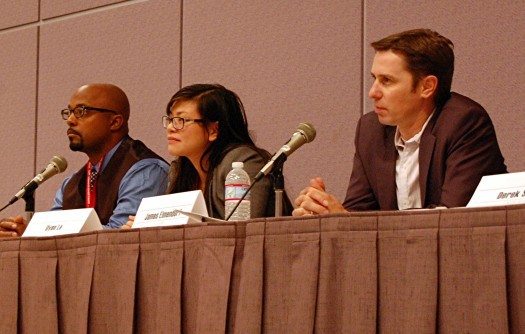
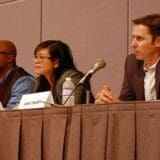
The AFL-CIO closed out its quadrennial convention in Los Angeles yesterday with a morning remembrance to the victims of 9/11 before delegates rolled up their sleeves and finished up with a day of internal housekeeping and policy chores.
The convention might be remembered most for debuting its highly popular afternoon Action Sessions. Comprising about 50 workshops and panels over three days, these sessions gathered together innovative thinkers, cutting-edge organizers and committed activists from around the country to share the lessons learned in hard-won battles to moved labor to the center stage of a 21st century economy.
Collectively they signaled the AFL-CIO’s seriousness about returning to the grass roots and leveraging one area where labor remains unrivaled and undiminished — its organizational power.
This commitment was especially clear at a Wednesday Action Session entitled “Policy Initiatives That Enable Organizing: Living Wage and PLA Campaigns.”
Moderated by James Elmendorf,
» Read more about: AFL-CIO Convention: A Tale of Two Action Sessions »
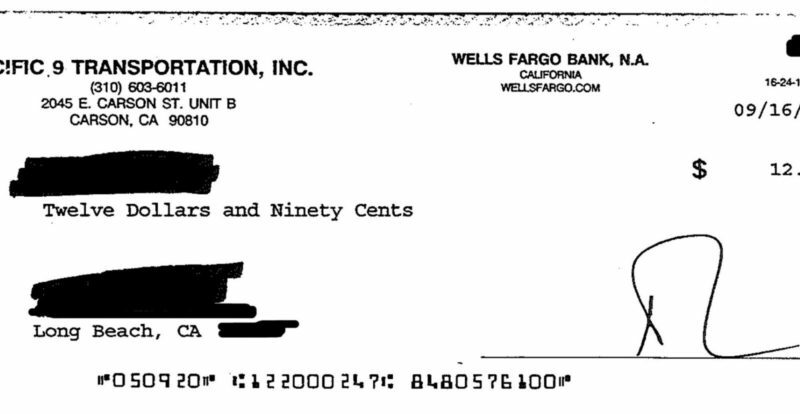

What would you do if your employer charged you a fee for everything you needed to work for them: your office desk, your computer, your phone line, your chair, your share of the water cooler and internet connection? What would you do if at the end of a week you were left with just one percent of your paycheck after all these had been deducted? How long would it take for you to stand up and refuse to keep paying to access the tools that allow you to do your work?
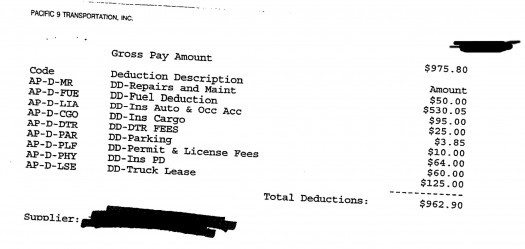 As you can see in the paycheck image above, that is the situation that truck drivers from the port trucking company, Pacific 9 Transportation, are facing. Drivers at Pac 9 move cargo to and from the ports of L.A. and Long Beach. The trucks they drive are leased from the company at $125 per week ($537.50 per month). In addition to the lease,
As you can see in the paycheck image above, that is the situation that truck drivers from the port trucking company, Pacific 9 Transportation, are facing. Drivers at Pac 9 move cargo to and from the ports of L.A. and Long Beach. The trucks they drive are leased from the company at $125 per week ($537.50 per month). In addition to the lease,
» Read more about: Port Truck Drivers Seek Millions in Owed Wages »
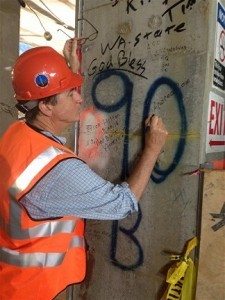
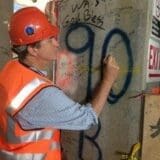
On a side street that runs alongside the World Trade Center, two bronze bas-relief murals depicting rescue scenes from 9/11 are affixed to a wall facing the construction site. One reads, “Dedicated to Those Who Fell and Those Who Carry On.” The other admonishes us to “Never Forget.”
When I had a chance to write my own name of the 90th floor of the new tower going up on the site of the two that were destroyed, I wrote “Remember,” underneath my name. But aside from keeping the sacrifice and bravery of those who died on 9/11 in our thoughts, what was the content of the memory that I was supposed to protect? What are those memories supposed to tell me about how to live now, how to act personally and politically in this world?
To some extent, the struggle over what would replace Ground Zero has been an argument about memory and its uses.


What happens when you grow up with a father who lost everything in the Great Depression? For Howard Sherman, you spend the rest of your life studying the causes of devastating financial collapses and how nations can avoid them.
With 22 books and more than a hundred articles, Sherman — a Visiting Scholar at UCLA and former chair of the U.C. Riverside Economics Department — is still fighting the good fight. His latest volume is Principles of Macroeconomics: Activist vs. Austerity Policies, co-written with Michael Meeropol. While the title may be dry, Sherman is anything but. In a recent interview, he offered blunt assessments of President Obama’s economic policies and why the U.S. labor movement should make full employment its highest priority.
Frying Pan News: Why did you write this book?
Howard Sherman: The main issue in economics is the distribution of income between workers and owners.
» Read more about: Economist Howard Sherman: Why Labor Should Fight for Full Employment »
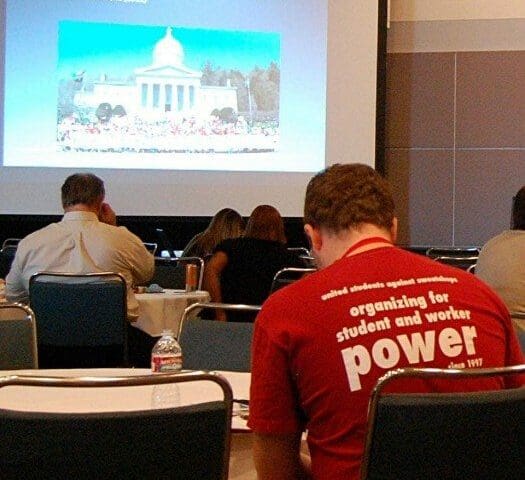
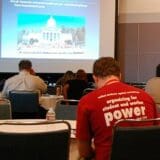
Day Three of the AFL-CIO’s quadrennial convention in Los Angeles kicked off yesterday with an address by newly minted U.S. Secretary of Labor Thomas Perez.
The Labor Secretary energized delegates by affirming the Obama administration’s support for a strong labor movement, praising the AFL-CIO’s efforts on comprehensive immigration reform and by pledging his department’s commitment to aggressively enforcing existing workplace laws.
Perez singled out the administration’s recently proposed rule to limit exposure to deadly silica dust in the workplace, saying that “it is a false choice to suggest that we can have job creation or job safety, but not both.”
He called raising the minimum wage “a moral imperative,” but admitted that despite 42 straight months of private sector job growth, job recovery overall remained disappointing, particularly for public-sector workers. “This is the first economic recovery in American history,” Perez noted, “in which government jobs haven’t come back.”
Perez’s presence marked the highest-level appearance at this convention by the Obama administration after the President last week canceled his own plans to attend the gathering,
» Read more about: AFL-CIO Day Three: Labor Sec’y Perez, Action Sessions »